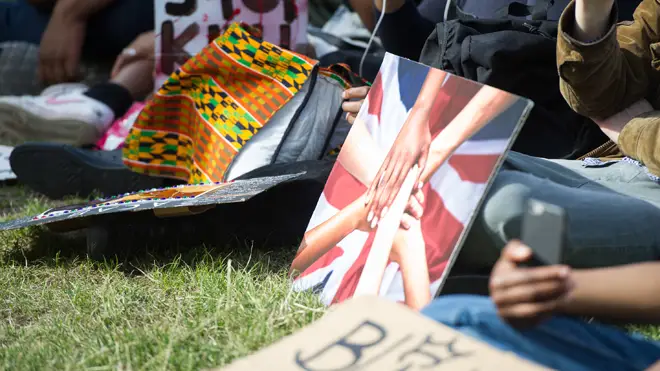
Richard Spurr 1am - 4am
1 October 2020, 08:25 | Updated: 1 October 2020, 09:31

People celebrating Black History Month have been called on to do "a little bit more" and not treat the event as a box-ticking exercise.
Speaking about Black History Month and what the event has meant in recent years, Josephine Melville, chair of the South Essex African Caribbean Association, said it can sometimes be a “sad state of affairs” and that it is usually a case of “lets tick the box for the month and then that’s it.”
As Black History Month begins today, campaigners are calling for the topic to have a greater prominence on the national curriculum.

South Essex African Caribbean Association chair Josephine Melville urges people to 'do more' to recognise Black History Month
Museums and schools are holding events to celebrate the cultural heritage of around two million people across the country.
Ms Melville told LBC: “I remember Sons coming to talk to me years ago when they were at school about their Black History Month event and I said ‘so what are we looking at? What are you going to do? What are the themes?’
“And he mentioned Beyonce and Bob Marley. Now, don’t get me wrong because I love Beyonce and Bob Marley and of course they have recognition in their own right but we’re talking about Black History Month… let’s just dig a little bit further, let’s just do a little bit more work.
"Because unless we start to do that work with the young people, there’s never going to be a change.
“We need to be able to empower and educate our young so that they can carry the baton on to the next stage.
“There really, really needs to be a change. We need to look at those challenging conversations now that have to happen.”
Ms Melville, who will be taking part in a number of events throughout October marking Black History Month, says after worldwide events this year including the BLM protests following the death of George Floyd in America, real discussions are already starting to happen.
“It was BME… then it was BAME… then it was BAMER… Where does it stop? These acronyms have to stop! They’re not what we want to be grouped in.
"They’re meaningless, collective terms. It’s not right! So even those conversations are being discussed right now. People are making recommendations that are going to be going to government to say ‘You know what? Enough already! BAME over!’
“It is Black History Month and we have to be positive BUT we have to realise that there is a major change going on right now and we have to be ready for it and I think the only way that we can do that is to start having those challenging, uncomfortable conversations and not being afraid.”
Josephine says “information is power” and it’s important that we all now take time to “try to make a difference” ourselves and get a better awareness:
“Black History Month has been going for a very long time now… and there are many themes that can come out of it. But the important thing is to appreciate the history and the legacy… You need to know where you’ve come from to be able to know where you’re going. It’s not rocket science.
“Don’t be afraid. Because we’ve had to end up being very brave when you think about some of the injustices and the atrocities that we’ve been through. But let’s not keep harping on about that… it’s now how we move forward.”
Josephine says there is also work to be done at the moment after a lot of anxiety within the African Caribbean community during lockdown.
“On the news we were hearing so much about the disproportionate effects that Covid was having and how many black people were dying… so in the community that had an even more powerful, ripple effect.”
Because of this she’s created a new community project called ‘Stepping Out’, helping elderly people in her local community in Southend who’ve been in isolation due to the pandemic, to ease back into society.